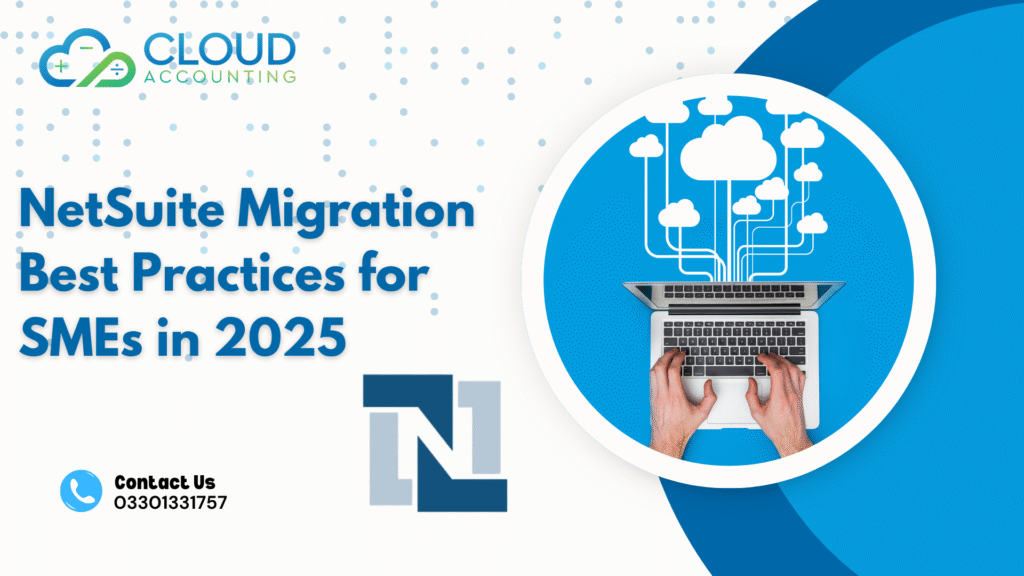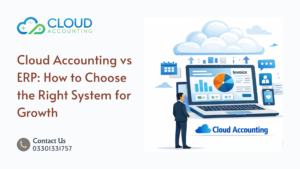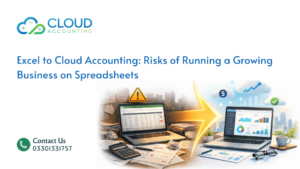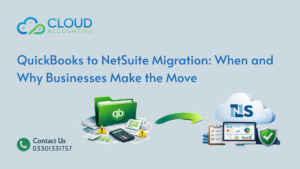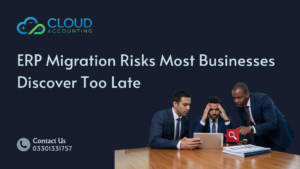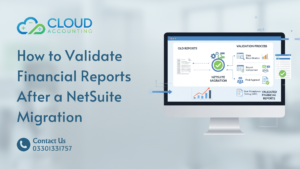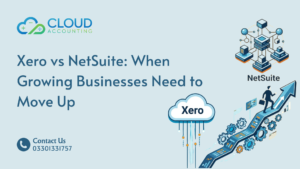Small and medium-sized enterprises (SMEs) often reach a point where legacy accounting systems like QuickBooks, Sage, or Xero can’t keep up. Growing businesses need better reporting, scalability, and compliance support. That’s where NetSuite comes in. But making the switch successfully isn’t about moving data overnight. It’s about following NetSuite Migration Best Practices that ensure your SME avoids costly mistakes and gains the full benefits of a modern cloud ERP.
Why SMEs Are Turning to NetSuite in 2025
For SMEs, upgrading systems is no longer optional. Traditional tools like spreadsheets, Sage, or entry-level cloud platforms often can’t cope with complex reporting, compliance, or international expansion. NetSuite has become the go-to solution because it delivers enterprise-level features without the heavy infrastructure costs.
Businesses are migrating to NetSuite because it offers:
- Centralised financial and operational data – All departments, from finance to sales, can access real-time figures in one place, eliminating the need for fragmented spreadsheets.
- Automated reporting and compliance tracking – SMEs gain built-in tools to handle VAT, tax, and industry-specific compliance without relying on manual adjustments.
- Scalability for multi-entity and multi-currency needs – As SMEs grow internationally, NetSuite makes it easy to manage subsidiaries, currencies, and consolidations.
- Cloud-based flexibility for remote teams – Whether staff are in the office or working abroad, NetSuite provides secure access to financial data anytime, anywhere.
- Stronger decision-making with real-time dashboards – Managers can see profitability, cash flow, and KPIs instantly, instead of waiting weeks for reports.
- Integration with other business systems – NetSuite connects seamlessly with CRM, eCommerce, and payroll platforms, helping SMEs modernise their entire business ecosystem.
With more SMEs expanding globally and managing increasingly complex operations, adopting NetSuite Migration Best Practices has become essential. These practices ensure businesses transition smoothly, keep financial data accurate, and avoid costly disruptions during the move.
7 NetSuite Migration Best Practices for SMEs
Migrating to NetSuite can feel daunting. But by focusing on NetSuite Migration Best Practices, SMEs can reduce risks and set up for long-term growth. Here are the seven steps that matter most:
1. Define a Clear Migration Strategy
Every migration starts with a plan. SMEs should:
- Set clear business goals for the migration
- Decide on a realistic timeline
- Align finance, IT, and operations teams
Without a strategy, even the best NetSuite implementation risks going off track.
2. Audit and Clean Your Data
Data quality is one of the most overlooked NetSuite Migration Best Practices. Before migrating:
- Remove duplicates and incomplete records
- Fix inconsistencies in customer, vendor, and transaction data
- Map financial data fields correctly to NetSuite
A thorough NetSuite data migration audit reduces errors and saves time during validation.
3. Select the Right Migration Partner
Many SMEs underestimate the complexity of migrating financial systems. Choosing experts who understand NetSuite Migration Best Practices ensures:
- Accurate data transfer
- Compliance with tax and reporting standards
- Reduced downtime during transition
Cloud-based migration specialists can help SMEs avoid common mistakes and deliver smoother NetSuite implementation.
4. Focus on Core Financial Data First
Not all data needs to move at once. A proven SME-focused practice is to:
- Start with key financial data (sales invoices, purchase orders, supplier/customer details)
- Leave historical or non-essential data for later phases
This phased approach to NetSuite Migration Best Practices allows businesses to go live faster while retaining accuracy.
5. Test and Validate Your Data
Testing is critical. A strong migration checklist includes:
- Running parallel reports in both systems
- Validating balances and transactions against old records
- Confirming VAT, tax, and compliance accuracy
Testing and validation prevent costly errors post-migration and reflect true NetSuite data migration integrity.
6. Train Staff Before Go-Live
People are as important as data. SMEs that succeed with NetSuite Migration Best Practices invest in staff training:
- Provide role-based training for accountants, managers, and operations staff
- Offer quick-reference guides for daily tasks
- Build confidence before the system goes live
With proper training, resistance to change decreases and efficiency increases.
7. Plan for Post-Migration Support
Migration doesn’t end at go-live. SMEs need:
- Dedicated support for troubleshooting
- Reporting customisation for management
- Ongoing training as teams grow
Post-migration support is one of the most overlooked but vital NetSuite Migration Best Practices. It ensures long-term system adoption and optimisation.
Common Pitfalls in NetSuite Migration SMEs Should Avoid
Even with careful planning, SMEs sometimes fall into traps. The most common mistakes include:
- Rushing migration without cleaning and validating data
- Ignoring tax, VAT, or compliance rules during transfer
- Underestimating training needs, leading to staff frustration
- Trying DIY migration without expert help
Avoiding these errors is just as important as following the right NetSuite Migration Best Practices.
How Cloud Accounting Supports Successful NetSuite Migration
At Cloud Accounting, we specialise in cloud accounting migration for SMEs. Our experts guide businesses through every step of the process:
- Full data audit and clean-up before migration
- Secure, accurate NetSuite data migration
- Validation and reconciliation of financial records
- Tailored training sessions for your team
- Dedicated post-migration support for long-term success
With us, SMEs get more than just a migration. They gain a trusted partner who ensures every best practice is followed.
Growing with NetSuite
Migrating to NetSuite isn’t just about moving software. It’s about building a stronger foundation for SME growth. By following NetSuite Migration Best Practices, cleaning data, training teams, and investing in ongoing support, businesses can set themselves up for years of success.
With NetSuite in place, SMEs gain more than just upgraded accounting. They benefit from:
- Scalability – Handle growth, acquisitions, or new entities without changing systems.
- Real-time visibility – Access consolidated dashboards and financial insights instantly.
- Multi-currency and multi-tax compliance – Expand globally with confidence.
- Automation – Reduce manual data entry and free up staff for strategic work.
- Integrated operations – Manage sales, inventory, and finance in one platform.
These advantages allow SMEs to focus on strategy rather than firefighting daily accounting challenges. Unlike smaller tools, NetSuite grows with your business — making it a long-term investment, not a short-term fix.
By committing to the right NetSuite Migration Best Practices, SMEs create a future-proof financial system that supports both local compliance and international expansion. The end result is stronger decision-making, better control, and the flexibility to seize new opportunities.
Ready to migrate with confidence? Contact Cloud Accounting today and let our experts handle your NetSuite journey from start to finish. We’ll ensure your migration is smooth, accurate, and built to support your business growth.

